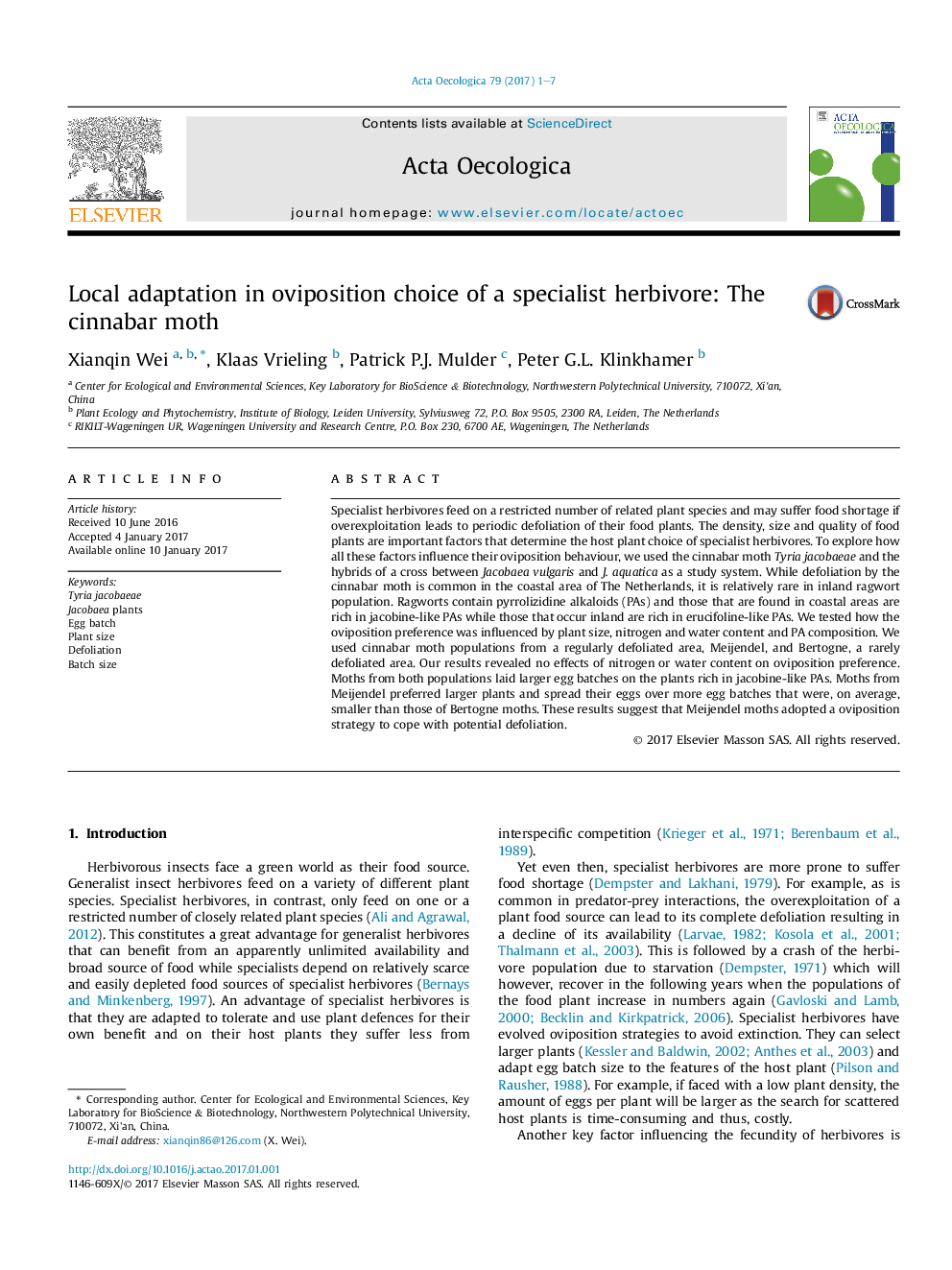| Article ID | Journal | Published Year | Pages | File Type |
|---|---|---|---|---|
| 5742512 | Acta Oecologica | 2017 | 7 Pages |
â¢Moth oviposition behaviours from regularly and rarely defoliated areas were studied.â¢Moths from regularly defoliated ragwort area prefer laying eggs on bigger plants.â¢Moths from regularly defoliated ragwort area lay smaller egg batches.â¢Moths have an oviposition preference for jacobine-like PA rich plants.â¢Data suggest that cinnabar moths are locally adapted to food plant abundance.
Specialist herbivores feed on a restricted number of related plant species and may suffer food shortage if overexploitation leads to periodic defoliation of their food plants. The density, size and quality of food plants are important factors that determine the host plant choice of specialist herbivores. To explore how all these factors influence their oviposition behaviour, we used the cinnabar moth Tyria jacobaeae and the hybrids of a cross between Jacobaea vulgaris and J. aquatica as a study system. While defoliation by the cinnabar moth is common in the coastal area of The Netherlands, it is relatively rare in inland ragwort population. Ragworts contain pyrrolizidine alkaloids (PAs) and those that are found in coastal areas are rich in jacobine-like PAs while those that occur inland are rich in erucifoline-like PAs. We tested how the oviposition preference was influenced by plant size, nitrogen and water content and PA composition. We used cinnabar moth populations from a regularly defoliated area, Meijendel, and Bertogne, a rarely defoliated area. Our results revealed no effects of nitrogen or water content on oviposition preference. Moths from both populations laid larger egg batches on the plants rich in jacobine-like PAs. Moths from Meijendel preferred larger plants and spread their eggs over more egg batches that were, on average, smaller than those of Bertogne moths. These results suggest that Meijendel moths adopted a oviposition strategy to cope with potential defoliation.
